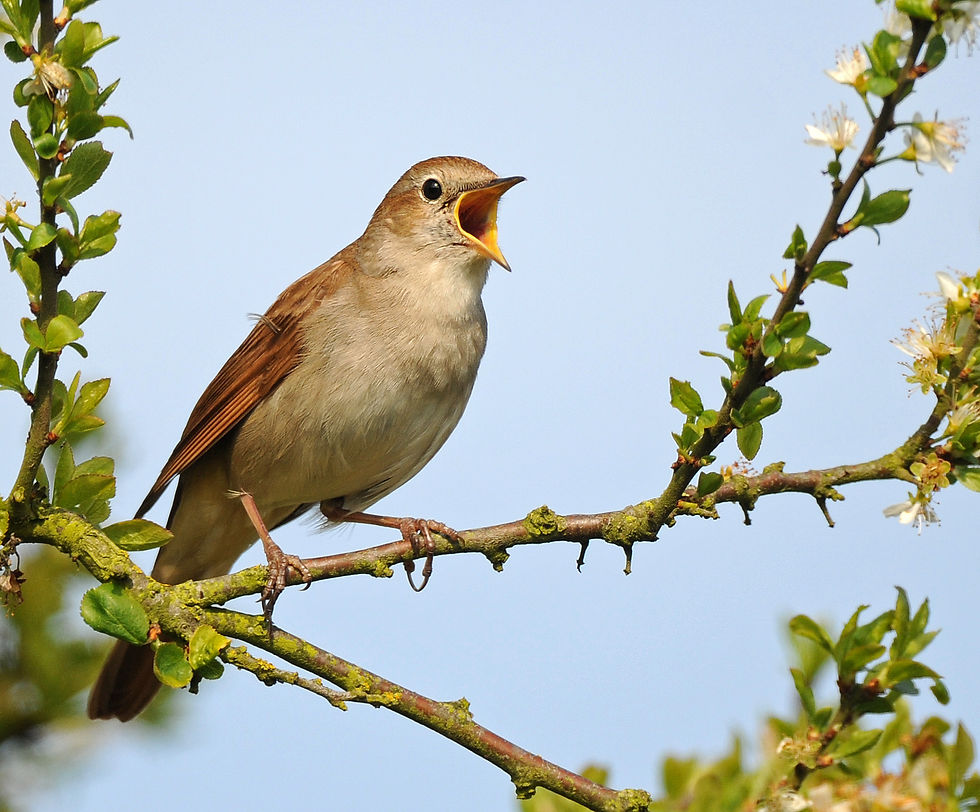This little light o' mine...
- Mike Copland
- Aug 24, 2022
- 2 min read

A WildCookham colleague just pointed me to a poem about glow worms* by the great 17th century English poet Andrew Marvell, along with other references in our literature to these strange beasts. We might think that this is because they were rare at the time, but the number and variety of mentions suggests otherwise. And it links to the many other sources – ‘scientific’, literary and colloquial – suggesting the richness of our wildlife in the past. Just think of our local Nightingale Lane (it's the only Nightingale we see here now).
Nothing is static. 130 years ago W H Hudson, the great naturalist writer*, tells us that people would travel a distance to see a magpie. And, before the days of enclosure, our ‘traditional’ hedgerow birds may well have been less numerous.
What is different today is the speed of change brought about by human activity. There are some newcomers: red kites are the most obvious but others have appeared locally, often due to a changing, warmer climate. Little egrets, the all-white herons now seen in our waterways and, more recently, their bigger cousins, great white egrets, are examples. And ravens and buzzards are seen more frequently than a few decades ago.
Overall, though, the numbers of birds, and indeed all the variety and quantity of life is reducing.

Many of our species, notably the farmland and hedgerow birds, are down by between 50 and 95% since the 1970s. Butterfly populations have plummeted and insects as a whole are reckoned to be down across Europe by as much as 75% over the same period.

The good news is that more people are waking up to these frightening trends. WildCookham’s Facebook page now has nearly 900 supporters with more joining every week. That means more awareness and more concern. Many are turning the concern into action, helping with projects to better understand our local ecology and also to improve habitats and even reintroduce species, as with WildCookham’s water vole recovery project.
Is this important alongside all the other challenges facing us at present? Yes! We have all become disconnected from nature but nature has not disconnected from us. We are all part of a complex and connected food chain. If there are no insects there are no humans. Simple. And we do not have much time to stop the rot. If you are not involved in some way talk to us at wildcookham@gmail.com. If you are involved please do more: we owe it to ourselves if nobody else.
You can talk to us at the Cookham Dean Fete on 17th September and check out www.meetup.com/wildcookham for our latest events. See you there!
Mike Copland
* Marvell’s poem is The Mower to the Glow Worms. Hudson’s book ‘Birds in a Village’, written in the 1890s, relates his time spent in Cookham one summer. Our very own Brian Clews has written a book updating this to today.
Photo of Nightingale: Jon Evans/RSPB





Comments